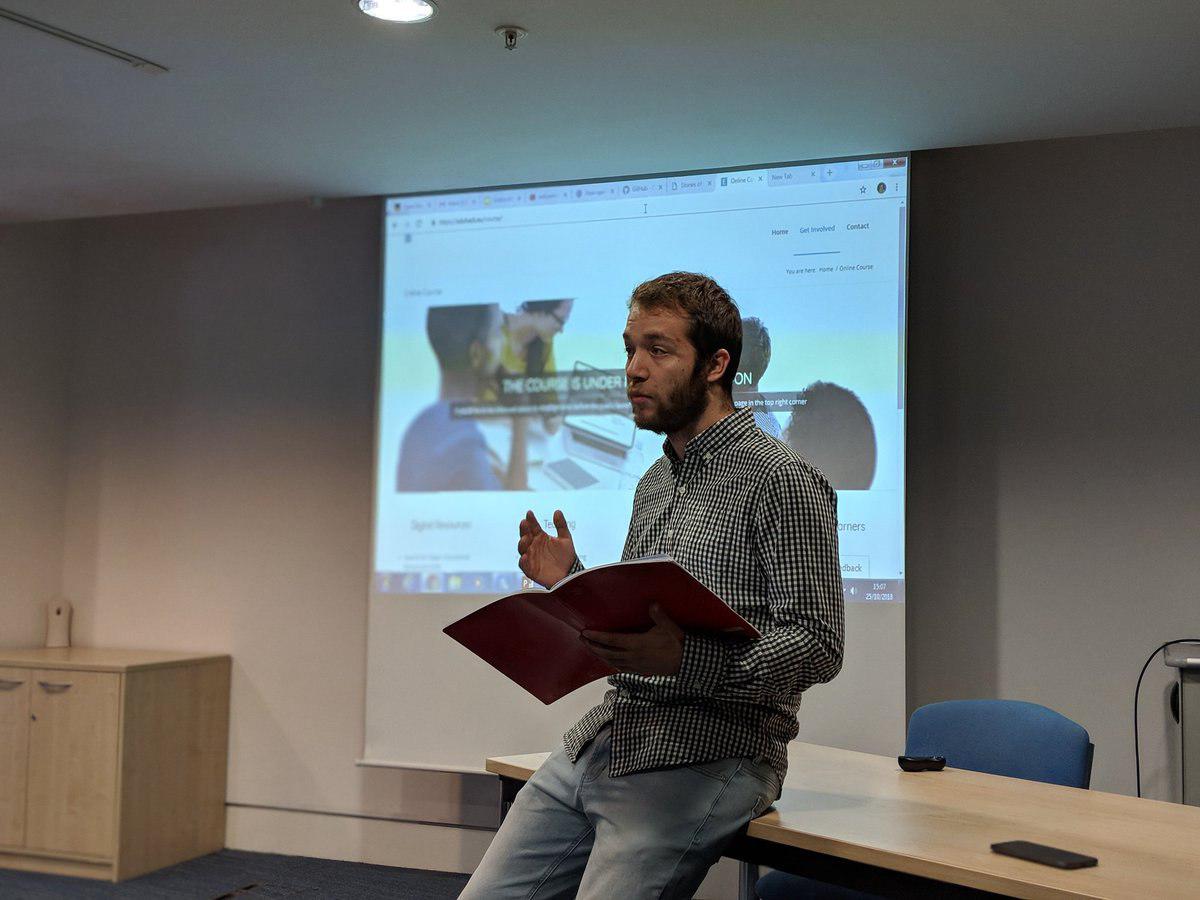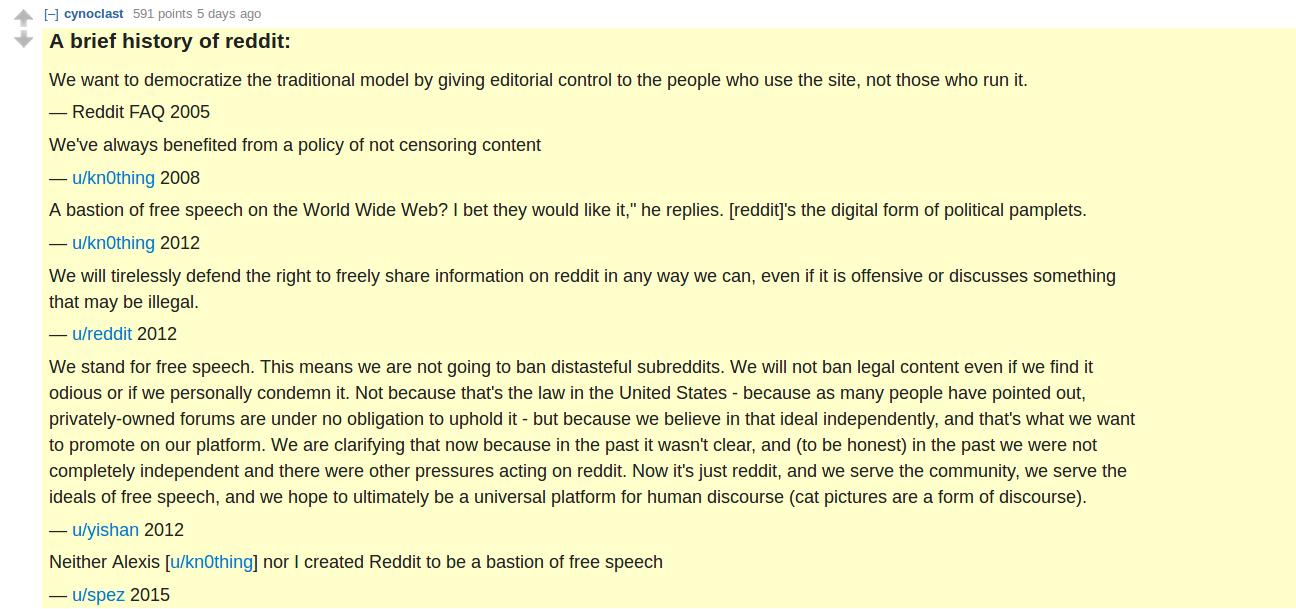eLearning in the age of Social Networks, the EduHack Platform
This is the revised transcript of my talk at the OWLTEH Conference 2018 at the Coventry University.

In the beginning there was the LMS
Learning Management Systems appeared on the market around the beginning of 2000.
Since then they have been the foundation of the modern education sector, ranging from the basic functionalities of activity tracking, grades and analytics for the students (and in some cases the parents) to complex environments for remote education or even experimental pedagogies (e.g. FARE that provides hospitalized students means to access the physical class and labs).
In the last five years commercial LMS reduced the pace of their progress, while providing better accessibility and decentralization.
The core of their principle hasn't changed. In this talk I am going to highlight their problems and outline a vision for a different approach that is supported by modern technologies.
The problem of traditional LMS
The design of a Learning Management System is based mainly around closed structures, such as very strict roles management and access management.
In a scenario where a professor might want to bring a domain expert during classes and online, a traditional LMS doesn't provide any kind of facilities for things such a role (in terms of login rights, rights towards other users, moderation capabilities).
There are many corner cases that lack a general method that allows users to expand the features of an LMS, especially when an institution lacks the technical means to bring development to such platforms.
Moreover, traditional LMS are highly gerarchic and foster an epistemology of "possession": learners are defined by the content that they "possess", the course they subscribed to, the material they downloaded. The educator is forced to be an authoritative source of knowledge that needs to direct the activity of the learners by having students pull the knowledge through an online portal. The flow is unidirectional and content centric.
In my experience instructors produce delivery-centered pedagogies because LMS lacks the flexibility to be adapted to learners, especially when they are used by a variety of instructors (e.g.: all of the professors of a UNI). While this model better reflects the traditional classroom I would argue that modern users are not used to this kind of dynamics in modern online communities.
You can learn more about the friction in the usage of traditional LMS in the following papers:
-
Rubin, Fernandes, Avgerinou, & Moore, 2010
-
Naveh, Tubin, & Pliskin, 2010
-
Parry, 2009; Sanchez-Franco, 2010
-
Beebe et al., 2010
Hacking Education with Digital Pedagogies
What happens when education gets "hacked" and transitions in the digital world? This is what we envision within the realms of the EduHack project:
-
"Content to consume" becomes "content to consume to produce content": learners become knowledge builders because producing intellectual outputs is the logical continuation to learning.
-
The environment goes from content centric to learner centric: teachers must be comfortable with the fluidity of such new roles.
-
The distribution of information goes from knowledge-push to knowledge-pull: learners actively seek out educational material and gets rewarded.
In the academia the closest study in this direction has been: eLearning 2 0 and new literacies are social practices lagging behind, W.-Y. Lim et al.
What do we gain with OSNs
In the Web 2.0 landscape and in particular for younger generations, Online Social Networks (OSNs) have strong potential for building and mantaining strong connections and create an informal learning environment that collects and puts into actions the ideas that I have described. I wont rehash widely known statistics, but it must be said that nowadays OSNs, in particular Facebook, Youtube and Twitter have a high rate of penetration towards students of upper secondary and post secondary education. For younger students OSNs are their primary means of communication while dominating their usage of the internet overall.
-
Using Social Networks Technology to Enhance Learning in Higher Education: a Case Study using Facebook.
-
Web-Based Learning Platforms integratins Social Networking for Design Educations at High Schols in China.
-
Using online social networking for teaching and learning: Facebook use at the University of Cape Town.
Case studies: Facebook as an alternative LMS
Different case studies analyzed the possible uses of Facebook as a social LMS. The following is a list of the positive and negative results of such studies grouped by User Experience Design (UX), Behavior of the users and Quantitative Participation.
UX
Advantages:
-
Photos and discussions are presented better than traditional LMS.
-
User's walls, private messages and comments are considered just communication tools.
-
Users reported that the technologies used for sharing class related material was familiar.
-
Educators reported that Facebook was useful to answer questions in bulk.
-
Educators reported that given the capabilities above, they saved a lot of time that otherwise would have been spent dealing with class related communications and questions.
Disadvantages:
-
Users where skeptical in writing long essays.
-
Friction when used as a formal learning platform.
-
Private platforms have issues related to accessibilities and language. Communication was done in english even if that wasn't the case before;
-
Facebook doesn't support a wiki system.
-
There are no tools for group management.
-
There are no tools for sending bulk messages and group notifications.
-
No capabilities for deletion and archival of material.
-
No support for common multimedia (such as powerpoint slides or pdf).
-
Maximum characters limit for posts.
Behavior of the users
Advantages:
-
Users reached to older students and befriended them.
-
Users reported that they felt less pressure online.
-
Educators found that boldlier students asked more questions because of absense of face to face shyness.
-
Students help each other in answering questions
-
Six people from prior classes idependently requested to join the group
-
Constant and more accurate feedback for teachers
-
Constant communication for teachers
-
They got to know classmates better
-
In heavily moderated OSNs, few users find disappropriate contents.
-
In a comparison Facebook's discussion were more numerous than Moodle's discussions even when people were not allowed to be friends
Disadvantages:
-
Addiction
-
Students reported difficulties to get used to the new online persona.
-
Miscommunication: many prefer face to face interaction to express views. This maybe because they are used to it in traditional classrooms.
-
Some people say that they don't feel safe on FB (this is even more common when interviewing master students).
-
Some students worry that their personal life could be discovered and misjudged by tutors.
-
Students avoided to befriend educators and lecturers in order to hide their private lives.
-
During the research period, no student befriended the interviewed lecturers.
-
Students did not accept friend requests from lecturers.
Quantitative Participation
Advantages:
-
Overall the students are more responsive to issues and questions raised in classes.
-
There is a higher number of ongoing discussions in any period.
-
Users log to Facebook for class related activities also during vacations (while the university LMS was almost not used).
-
Very active participation: more than 90% of the students used Facebook outside of classes for study related activities.
-
Improved discussion outside of classes.
-
Students post class related material.
-
Creation of many User Generated Content.
There are no relevant reported challenges regarding participation and usage patterns.
Where do we go from here?
I want to highlight some other threats that an OSN such as Facebook poses to the Open Web.
-
The issue of privacy: forcing students to use a service that mines and sells their data is unethical.
-
Identity pollution: the open web is based on the principle of pseudoanonimity, users should be capable of build a prism of different online identity for different communities and environments.
-
Studies report Facebook as more appropriate for younger students, but younger people have higher rates of addiction to OSNs as well.
-
Addicted OSNs users have a lower GPA.
-
20% of college students reported being stalked on OSNs.
While the reported results about learners and educators participation in the usage of OSNs as LMS is astounding, forcing students to signup and give away their sensible data to private services is debatable and could be considered unethical.
The EduHack model
We need to develop a new LMS that is respectful of the Open Web standards without providing any friction to the users.
For this reasons, as part of the EduHack Project, we are developing the EduHack Knowledge Sharing Platform.
The EduHack Knowledge Sharing Platform was born around the assumption that many of the advantages in terms of user engagement and group dynamics
provided by OSNs could be replicated by adopting their widely known design patterns and mimicing closely the UX.
At the core of the platform there are the founding principles of the Open Web.
For this reason no data is collected of mined. Users are provided with an account that could be separated from their different online persona.
A platform for collaborative learning
The EduHack Knowledge Sharing Platform is divided into two parts.
The personal area is user centric and provides a window into the activities of the user in the form of multimedia blogposts.
The user can create and manage different roles for external editors to his private area. By default no other user is allowed to post a "story" in his personal area, but other users can be added as team members and can manage group works in different blogs.
Learners are expected to elaborate and remix what they learned (e.g. from online classes or MOOCs).
The public area is modelled after the UX of Reddit and it is divided into diffent sections (e.g.: mathematics, IT, discrete phisics, etc...), each providing a wiki.
Learners can subscribe to different sections or different users and be notified of new content or interactions.
Every user is allowed to post a link, an essay or any other widely adopted multimedia artifact to any section. Every user can positively vote and comment every post made. Comments can be positively voted as well.
Comments and content can be ordered by a custom algorithm (Wilson score interval) or chronologically.
Educators have a custom flair, can create new sections and moderate them. Moderation consists in changing links, removing posts or comments. Vote cannot be altered.
Conclusions
The EduHack Knowledge Sharing Platform is an ongoing effort to evolve LMS and augment them with social features and modern group dynamics.
The UX is modeled after a widely used social network without sacrificing consolidated approaches from traditional LMS.
We want to provide with this model an ethically sound framework for user centric, knowledge-pull pedagogies.
References
-
Using online social networking for Teaching and learning: Facebook use at the University of Cape Town, Tanja E Bosch.
-
The myths about e-learning in higher education, James Kariuki Njenga and Louis Cyril Henry Fourie
-
Group Formation in eLearning-enabled Social Networks, Steffen Brauer and Thomas C. Schmidt
-
eLearning 2.0 and new literacies: are social laggin behind, Wei-Ying Lim, Hyo-Jeong So and Seng-Chee Tan
-
Using the Facebook group as a learning management system: An exploratory study, Qiyun Wang, Huay Lit Woo, Choon Lang Quek, Yuqin Yang and Mei Liu
-
Using Social Networking Technology to Enhance Learning in Higher Education: A Case Study Using Facebook, Peter Ractham and Daniel Firpo
-
Students’ and teachers’ use of Facebook, Khe Foon Hew
-
The future of e-learning: a shift to knowledge networking and social software, Mohamed Amine Chatti and Matthias Jarke
-
Using Facebook as course management software: a case study, Elizabeth M. LaRue
-
Electronic Social Media in Teaching: Usages, Benefits, and Barriers as Viewed by Sudanese Faculty Members, Ahmed Yousif Abdelraheem and Abdelrahman Mohammed Ahmed
-
The Use of Social Networking in Education: Challenges and Opportunities: Ashraf Jalal Yousef Zaidieh
-
Findings on Facebook in higher education: A comparison of college faculty and student uses and perceptions of social networking sites, M.D. Roblyer, Michelle McDaniel, Marsena Webb, James Herman and James Vince Witty e,4
-
Online social networks: Why do students use facebook? Christy M.K. Cheung, Pui-Yee Chiu and Matthew K.O. Lee
-
e-Learning: The student experience, Jennifer Gilbert, Susan Morton and Jennifer Rowley

